Non-resident tax
If a person resides more than 182 days in any calendar year in Spain, then that person will be deemed a resident in Spain for tax purposes. Persons spending less than this period, will be deemed non-resident for tax purposes. That said, it is impossible to establish exactly ones tax situation, without detailed knowledge of the personal circumstances.
Contact our English-speaking team for all your legal, property, and accounting needs.
Tax Collection in Spain
The authority responsible for the collection of taxes is the “Agencia Estatal Tributaria” (AEAT-Hacienda), which is organised on a provincial basis. In each province there is a main office of Hacienda, and in many provinces there may be one or more sub-provincial offices.
There is an important difference between the way in which the Spanish and the British pay their taxes, because in Spain it is a personal responsibility and obligation to complete a tax return each year, by making a self assessment of the amount to pay, and submitting the form to the Hacienda together with the amount due.
N.I.E. (Numero de Identificacion de Extranjeros)
This is an identification number for use by foreigners in Spain.
If you have dealings within Spain – even if you are not full time or tax resident – you are required to have a number.
This is obtained from your local Police Station at the foreigners’ department. However tempting it may be not to bother obtaining this number you will find that it will cause you great inconvenience in the future if you do not have one.
Fiscal Representatives
The Spanish Law until recently required any person who had dealings within Spain but who was not a full time resident in Spain to appoint a fiscal representative. Although this is no longer strictly necessary, we still consider that it is a step well worth taking.
A Fiscal Representative is a person who undertakes on behalf of the taxpayer all dealings with the Spanish Tax Authorities. The appointment of a Fiscal Representative is the only way in which you can be sure that the Spanish Tax Authorities, unable to contact you because you are not in the country, do not take damaging and expensive action against you to collect any sums of taxes which they allege to be due.
The Spanish taxation management authorities do not work to the same standards as the English ones and mistakes on your tax bill are frequent which can leads to serious problems if not addressed.
Appeals
As in most countries, if you disagree with the amount of tax that you are required to pay you can appeal against the decision of the Tax Authority. We can advise you on this.
Personal Taxes
Impuesto sobre Patrimonio (Wealth Tax) : Spanish wealth tax for non residents has been abolished since the 1st January 2008.
Impuesto sobre la Renta de las Personas Fisicas (lncome Tax)
A person non resident in Spain for tax purposes must still make an annual declaration for income tax. The Spanish Authorities are only concerned with income derived from activities in Spain, not your world-wide income. A typical example of this would be the income derived from renting your apartment or house. (See also, “Tax on the Notional Letting Value of Your Property” below).
As this income is part of your worldwide income it would also have to be declared to the British Tax Authorities, however double taxation relief does exist, as a result of a treaty between the two countries.
Tax on the Notional Letting Value of Your Property
In addition to the ordinary income tax return, which you must submit in appropriate cases, you are required to make a tax return in respect of the notional letting value of your property. This tax return has to be made whether you have actually let the property to anybody or not. If you have actually let the property and received money for it, then the money you have received will have been declared in your ordinary income tax return. The amount of tax is calculated by reference to the valor catastral (see above) of your property.
The amount of notional letting to be declared in the form is 1.1% of the valor catastral. You will then have to pay tax at 24% of that 1.1%. Thus, if you have a property worth in reality £150,000 but which has a valor catastral of £50,000, the taxable notional rent of the property will be £550.00 (1.1% of £50,000), and you will have to pay £132 in tax (24% of the taxable amount).
Inheritance Tax
As in most countries the State likes to take a chunk of your assets when you die. How much they will receive depends largely on how well you plan your affairs.
The whole system of taxation on death is very different from the English system and so poses a real danger to English people who assume that similar provisions will apply and thereby arrange their affairs accordingly. Some differences are: In Spain there is no automatic inheritance by a wife or other joint owner of the deceased joint owner’s share in any property. If it is left by will or on intestacy to the other joint owner, the gift will be taxable.
The amount of tax payable is determined not by the size of the whole estate, as in England, but by the size of each individual inheritance. The tax is progressive; the more you inherit, the higher the rate of tax you will have to pay.
Close relatives pay tax at a lower rate than more distant relatives who in turn pay less tax than total strangers. Close relatives are also entitled to receive a sum tax-free. More distant relatives and strangers are not.
An estate of, say, £100,000 can therefore produce a large tax bill if it is all left to one person – especially a non relative – and little or no tax bill if it is divided amongst a number of beneficiaries who are close relatives.
Those who are already wealthy when they inherit pay more tax than those beneficiaries who are poor. In the case of foreigners the only wealth taken into account is their Spanish wealth.
There is great scope for minimising inheritance tax. In general terms, dividing your assets between your husband/wife and children tends to produce the lowest tax bills. Take as an example a typical case where the estate comprises a villa and a small bank account – a total estate valued at, say, £50,000. If the estate was left to a stranger – including, for this purpose, a non-related executor and trustee – a tax of about £5,000 would be payable. If the same estate was left in equal shares to a wife and 3 children, no tax at all would be payable.
Those who do not have spouses or children can use the same principles to make savings using other classes of beneficiary. But of course if you put the property in other person’s names you are not longer the owner of your own property. Penalties are imposed if the tax due is not paid within 6 months of the date of death.
In many cases where sizeable tax payments are going to be a problem, it is possible to dispose of the assets during the owner’s lifetime much more cheaply than at his death. In many regions there are important allowances when both the deceased and beneficiaries are residents in the region. When beneficiaries are close relatives there could even be no payment of inheritance tax.
VAT
As in England, most transactions in Spain involve the payment of VAT. The normal rate is 16%. Transactions involving basic necessities carry VAT at a rate of 4%. Certain items are VAT exempt.
NOTE: The information provided above is no more than background reading designed to give an insight on the structure of the Spanish tax system. We can accept no responsibility for any action that you may take or fail to take as a result of reading this information.
Need help understanding the taxation system?
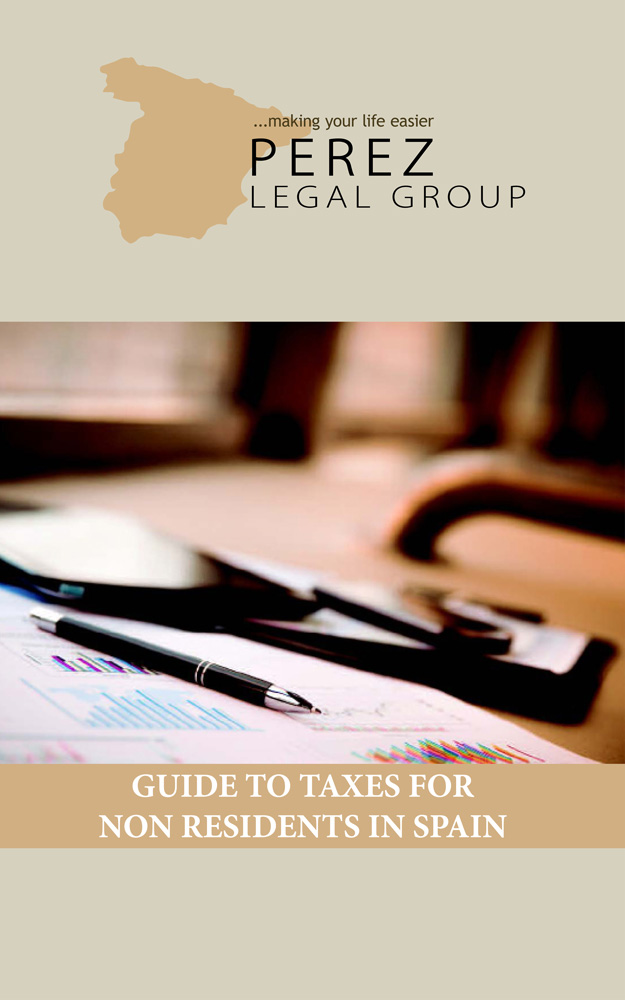
Download the FREE Guide to Taxes for Non-Residents in Spain, written by Raquel Perez, owner of Perez Legal.
Are you buying a property?
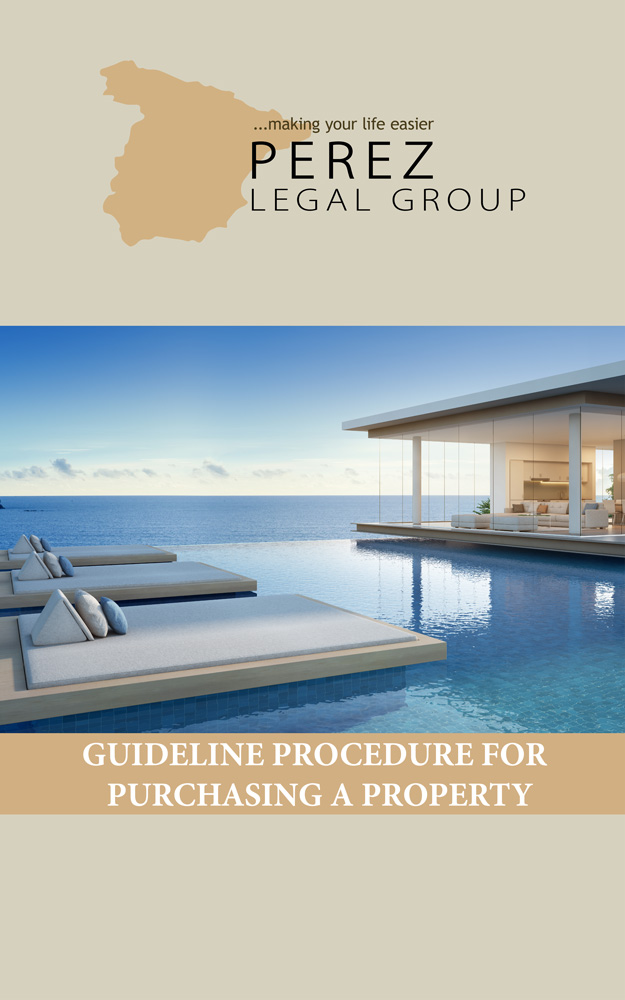
Then you need to know the process. Download the FREE Guideline Procedure for Purchasing a Property.
Confused with the legalities of buying a home?
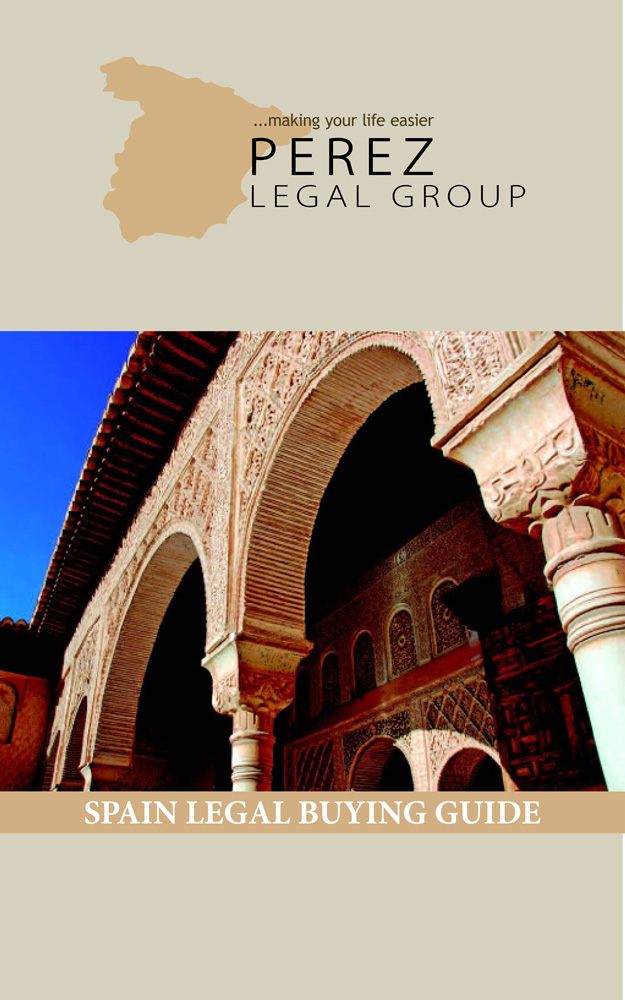
Download the FREE Spain Legal Buying Guide, written by Raquel Perez, owner of Perez Legal Group.
Selling your property?
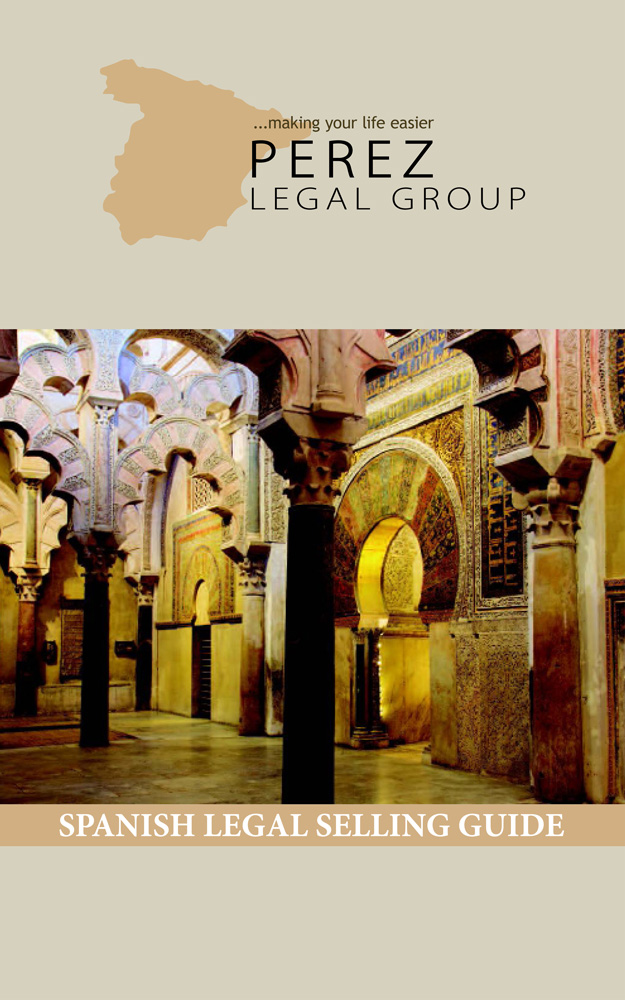
Get an overview of what is involved by downloading the FREE Guide to Selling Your Spanish Property Legally.
Do you need help planning for the future?
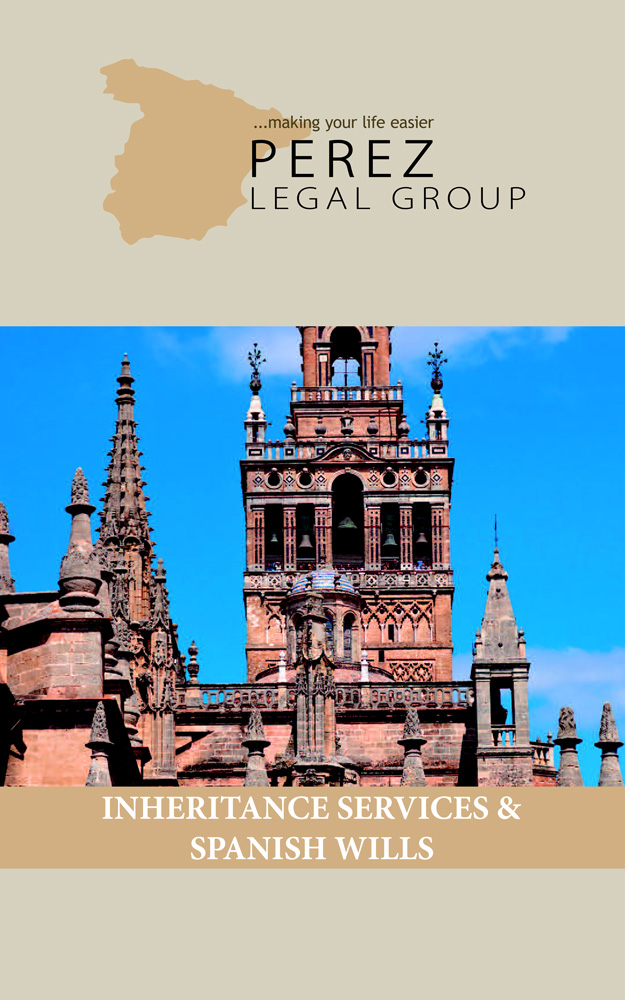
Find out more information on the inheritance system here in Spain by downloading the FREE Inheritance Services book.
Are you planning to run a company in Spain?
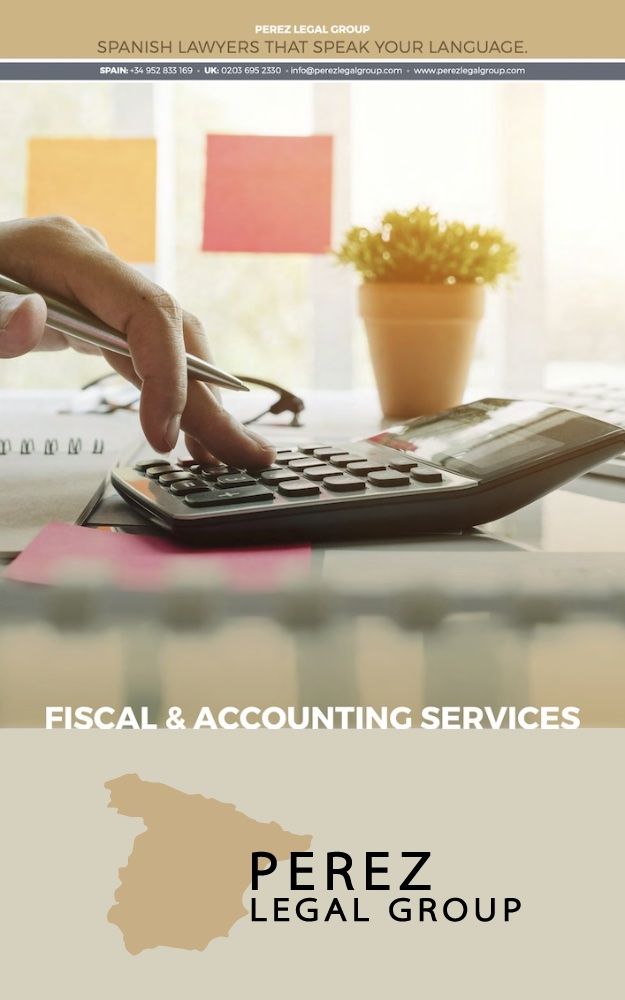
Download our Fiscal & Accounting Services Guide and Price List to find out all about running a company in Spain.
